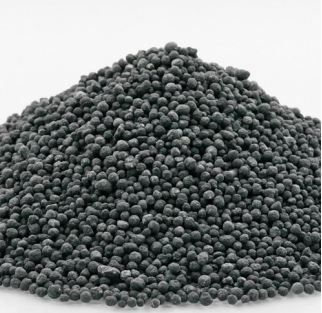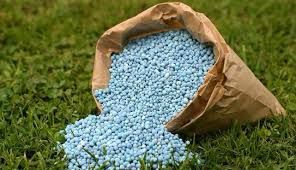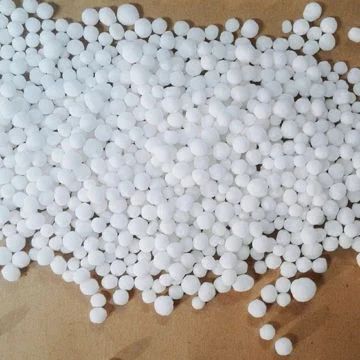Agricultural Fertilizer
Leading Exporters, Trader and Importer of DAP Agricultural Fertilizer, NPK Fertilizer and Urea N46 from Dubai.
| Business Type | Exporter, Trader, Importer |
| Country of Origin | Middle East , Kazakhstan and other Major producing countries |
| Type | Granular Fertilizer |
| Material | Diammonium Phosphate |
| Application | Direct Soil Application Or Blending In Fertilizer Mixes,Agricultural Fertilizer For Boosting Plant Growth |
| Composition | 18% Nitrogen (N) And 46% Phosphorus Pentoxide (P2O5) |
| Benefits | Promotes Strong Root Systems, Improves Crop Yields, Enhances Plant Resistance To Stress |
DAP fertilizer, or Diammonium Phosphate, is a widely used granular fertilizer that provides plants with essential phosphorus and nitrogen. It 's a concentrated source of phosphate and is popular in agriculture for boosting plant growth, particularly during early development.
Here 's a more detailed look:
• Composition: DAP contains 18% nitrogen (N)and 46% phosphorus pentoxide (P2O5).
• Function: It is a good source of phosphorus, a key nutrient for root development, flowering, and fruiting. The nitrogen in DAP also supports early plant growth and overall vigor.
• Solubility: DAP is water-soluble, meaning it dissolves easily in the soil, making the nutrients readily available to plants.
• Application: It can be applied directly to the soil or used as a component in fertilizer blends.
• Benefits: DAP is known to promote strong root systems, improve crop yields, and enhance plant resistance to stress.
• Environmental Considerations: While generally considered environmentally friendly, it 's important to monitor soil pH when using DAP as it can temporarily lower the pH in the immediate vicinity of the fertilizer granules.
Coal
Coal is a combustible black or brownish-black sedimentary rock with a high amount of carbon and hydrocarbons. Coal is classified as a nonrenewable energy source because it takes millions of years to form. Coal contains the energy stored by plants that lived hundreds of millions of years ago in swampy forests.
| Business Type | Exporter, Trader, Importer |
| Type | Compound Fertilizer |
| Material | Nitrogen,Phosphorus,Potassium |
| Color | Varies |
| Application | Promotes Balanced Plant Nutrition For Healthy Growth And Increased Yields |
| Country of Produce | Uzbekistan |
| Formulations | Available For Various Applications Like Topdressing Or Dissolving In Water |
NPK fertilizer is a type of compound fertilizer that contains the three primary macronutrients essential for plant growth: Nitrogen (N), Phosphorus (P), and Kotassium (K). These nutrients are crucial for various aspects of plant development, including leaf growth, root and flower development, and overall plant health.
Key aspects of NPK fertilizer:
NPK Ratio:
The numbers on an NPK fertilizer label (e.g., 10-10-10) represent the percentage of nitrogen, phosphorus, and potassium, respectively, in that order.
Essential Nutrients:
Nitrogen (N): Important for leaf and stem growth, and overall plant vigor.
Phosphorus (P): Crucial for root development, flowering, fruiting, and energy transfer.
Potassium (K): Plays a vital role in regulating plant metabolism, strengthening cell walls, and enhancing disease resistance.
Benefits:
NPK fertilizers promote balanced plant nutrition, leading to healthy growth, increased yields, and improved crop quality.
Types:
NPK fertilizers are available in both solid (granular or powder) and liquid forms, with different formulations suitable for various applications like topdressing or dissolving in water
| Business Type | Exporter, Trader, Importer |
| Country of Origin | Middle East, Kazakhstan and from other major producing countries |
| Color | White |
| Form | Granules Or Prills |
| Type | Fertilizer |
| Material | Organic Compound |
| Solubility | Highly Soluble In Water |
| Applications | Fertilizer, Animal Feed Additive, Industrial Uses |
Urea N46 is a nitrogen-rich fertilizer, commonly known as carbamide, with a nitrogen content of 46%. It is a white, crystalline, organic compound. Urea N46 is widely used in agriculture due to its high nitrogen concentration, which is crucial for plant growth and yield. It is typically available in granular or prilled form and is known for its free-flowing and non-clumping properties.
Key Characteristics of Urea N46:
• Nitrogen Content: Contains 46% nitrogen, a vital nutrient for plant growth.
• Physical Form: Available as granules or prills (small, spherical particles).
• Chemical Formula: CO(NH₂)₂.
• pH: Slightly alkaline with a pH range of 8.0-8.5, according to Ariyan International Inc..
• Solubility: Highly soluble in water, making it suitable for soil application and fertigation.
• Non-toxic and Safe: Generally considered safe for agricultural use, with no harmful substances or radioactivity.
• Anti-caking Agents: Often treated with anti-caking agents to prevent clumping during storage and handling. Applications:
• Fertilizer: Used as a nitrogen fertilizer for various crops to enhance vegetative growth and yield.
• Animal Feed Additive: Can be used as a protein source in animal feed.
• Industrial Uses: Serves as a raw material in the production of plastics, resins, and other chemicals. Important Considerations:
• Storage: Should be stored in a cool, dry place, away from moisture and extreme temperatures, to prevent clumping.
• Application: Can be applied to soil before planting or during the growing season.
• Safety: While generally safe, it 's important to follow recommended application rates and safety precautions to avoid potential hazards.



